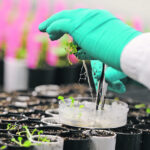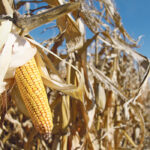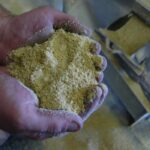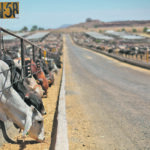The U.S. Department of Agriculture defines bioengineered food as food that “contains detectable genetic material that has been modified through certain lab techniques that cannot be created through conventional breeding or found in nature.” If that definition sounds familiar, it is because it is essentially how genetically modified organisms, or GMOs, are defined – common […] Read more
Tag Archives GMOs — page 3

GMO labelling saga comes to an end
In the end, it was consumer demand at the grocery counter that largely solved the GMO labelling issue before the wheels of government regulation imposed a standard. “We have a vocal minority for whom it’s an issue,” said Mike von Massow, a food economist in the University of Guelph’s food, agricultural and resource economics department. […] Read more

Consumers remain skeptical of modern plant breeding
Debunking myths and lowering concerns about genetically modified organisms and gene editing must remain a focus for the agricultural sector, a conference was told last month. Ian Affleck, vice-president of plant biotechnology at CropLife Canada, said during the Farm and Food Care Saskatchewan meeting that consumers don’t have a high opinion of plant breeding, illustrating […] Read more

Glyphosate, GM crops help sequester carbon: research
University of Saskatchewan research has concluded that genetically modified canola and the use of glyphosate have increased carbon sequestration in the soil and reduced CO2 emissions from Canadian farmland. “There is a complementary relationship between the adoption of herbicide-tolerant (HT) canola and conservation tillage, resulting in corresponding changes in GHG emissions,” says a paper published […] Read more

China plans overhaul of seed rules to pave way for GMO approvals
BEIJING, Nov 15 (Reuters) – China has laid out a clear path for seed makers to get approval for genetically modified crops, under proposed rule changes that should lead to commercial cultivation of GM corn. Details of the planned regulatory overhaul for the seed industry were published on Friday by the agriculture ministry in a […] Read more

Bayer blasts ‘unscientific’ rejection by Mexican regulator of GMO corn permit
MEXICO CITY, Oct 8 (Reuters) – Bayer is evaluating its legal options after Mexican health regulators for the first time rejected a GMO corn permit it was seeking, the German pharmaceutical and crop science giant said in a statement to Reuters on Friday, blasting the decision as “unscientific.” Reuters reported late last week that regulator […] Read more

Mexico nixes new GMO corn permit for first time, farm lobby says
MEXICO CITY, Oct 8 (Reuters) – Mexican health safety regulators have rejected a new variety of GMO corn for the first time, the head of the country’s top farm lobby told Reuters, in a sign the government is hardening its position against genetically-modified crops. Mexico, birthplace of modern corn, has never permitted the commercial-scale cultivation […] Read more

Logistical bottlenecks seen limiting India’s soymeal imports: trade
MUMBAI, Aug 25 (Reuters) – Indian traders are scrambling to secure prompt shipments of soymeal after New Delhi relaxed rules to allow the import of 1.2 million tonnes of the animal feed, but logistical bottlenecks could limit volumes to less than 400,000 tonnes, industry officials told Reuters. New Delhi on Tuesday allowed imports of genetically […] Read more

Clashing visions of Mexico’s GMO corn ban cloud impact
MEXICO CITY, Mexico (Reuters) — A clash at the top of Mexico’s agriculture ministry over the scope of President Andres Manuel Lopez Obrador’s push to prohibit genetically modified corn has cast uncertainty over the industry. If liberally interpreted and successfully implemented, the new rules could ban imports of GM corn by 2024, ending a dependence […] Read more

Russia suspends feed shipments from Canada over GMOs
Russia has suspended imports of animal and pet feed from Canada, citing undeclared GMOs. The Russian Federation said undeclared or unregistered GMOs were found in recent shipments and that products shipped before June 17 would be tested before being allowed entry, according to a Canadian Food Inspection Agency statement. The CFIA, Agriculture Canada and Global […] Read more






